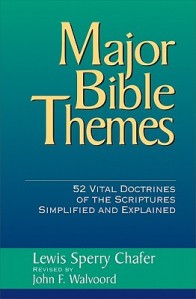 I have heard many sermons which were merely delivered but not prepared, i.e. they were taken from the internet. Good preaching is not cheap.
I have heard many sermons which were merely delivered but not prepared, i.e. they were taken from the internet. Good preaching is not cheap.
Unashamed Workman asked some well known preachers about their time spent in preparing a sermon as well as other aspects of their preaching – this was question 3:
3. How long (on average) does it take you to prepare a sermon?
Thabiti Anyabwile: Currently, I devote two full days to sermon preparation—Thursday and Friday. I’ll generally spend about twenty hours over those two days and a few hours through the week reading the text and making notes.
Tim Keller: I pastor a large church and have a large staff and so I give special prominence to preparing the sermon. I give it 15-20 hours a week. I would not advise younger ministers to spend so much time, however. The main way to become a good preacher is to preach a lot, and to spend tons of time in people work–that is how you grow from becoming not just a Bible commentator but a flesh and blood preacher. When I was a pastor without a large staff I put in 6-8 hours on a sermon.
Matt Chandler: On average 6-10 hours. It used to take me much longer but the more I have studied and preached the quicker it has started to come.
Peter Grainger: Depending on the difficulty of the passage and my familiarity with it, between 15-25 hours.
Ray Ortlund Jr: Early in my ministry, I needed twenty-plus hours to prepare. By now, the disciplines are more streamlined. I average perhaps ten hours or so.
One final quote from Unashamed Workman quoting T. David Gordon:
True preaching requires close examination and study of a quality text, something non-readers have no experience of today. People don’t study classical languages. They don’t read literature. They aren’t equipped to really study a text. People read for content, but don’t learn to look at how a text communicates.
True preaching requires careful composition. But people don’t write letters anymore. They talk on the phone. Instead of careful composition, we live in a day of easy and cheap talk.
True preaching requires a sensibility of the significant. But the only way to watch hours of television is to turn off such sensibility, so most do.
Unashamed Workman recommends some excellent resources to help your preparation.




 As I don’t sleep well at night I love taking a nap. Ideally it should happen a couple of times a day, maybe for 15 minutes each – what a blessing that would be. Modern thinking tends to decry such ideas – we are meant to be busy with hectic schedules. Well the good news is that napping is meant to be good for you, according to
As I don’t sleep well at night I love taking a nap. Ideally it should happen a couple of times a day, maybe for 15 minutes each – what a blessing that would be. Modern thinking tends to decry such ideas – we are meant to be busy with hectic schedules. Well the good news is that napping is meant to be good for you, according to 



